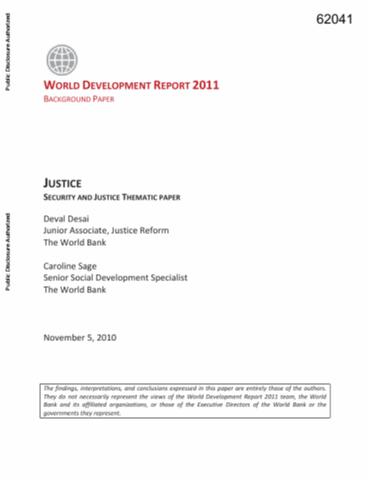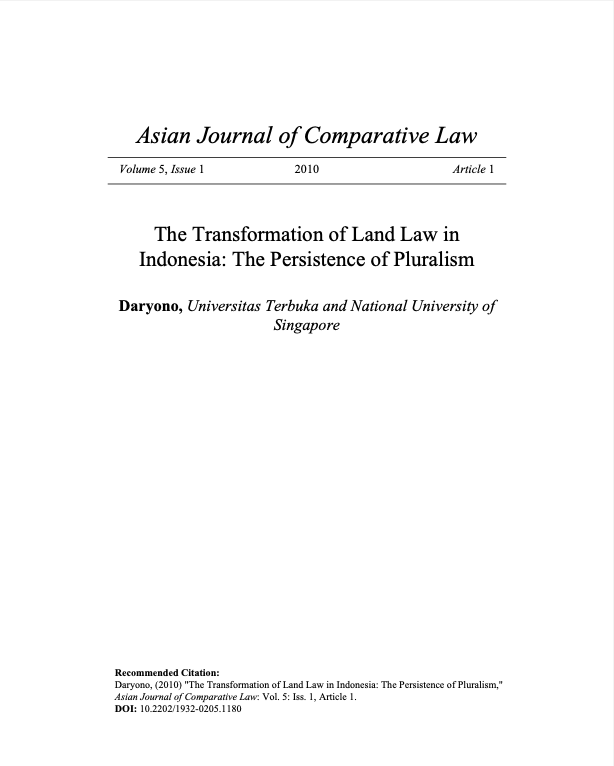Relaciones de autoridad en el marco de los nuevos arreglos de tenencia forestal
Cutting the coat according to the cloth : decentralisation and women's agency on land rights in Uganda; final report
This paper highlights how women are interfacing with institutions of power at a local level in Uganda in terms of land claims. According to the Land Act 1998, all land is vested in the citizens who own it. Enormous resistance occurred behind the scenes against women’s efforts to include a provision on spousal co-ownership of land. The provision was passed in parliament but it did not appear in the published Land Act (2003:162).
Securing women’s access to land : linking research and action
The animosity created during land contestations makes it impossible for widows, wives and mothers to peacefully settle land claims and use their land. The research evidence provides a platform to advocate for a transformative agenda to improve rural poor women’s access to and control over land and other natural resources. This includes building linkages with the wider advocacy relationships and programmes of International Land Coalition (ILC - www.landcoalition.org).
Tanzania : Maasai women gain access to land
Posted in: African farm news in review, issue #133
Statutory recognition of customary land rights in Africa
Given the recent trend of granting vast areas of African land to foreign investors, the urgency of placing real ownership in the hands of the people living and making their livelihood upon lands held according to custom cannot be overstated. This study provides guidance on how best to recognize and protect the land rights of the rural poor. Protecting and enforcing the land rights of rural Africans may be best done by passing laws that elevate existing customary land rights up into nations' formal legal frameworks thereby making customary land rights equal to documented land claims.
FAO Policy on Indigenous and Tribal Peoples
Indigenous peoples1 must be considered an undeniable stakeholder in a development agenda shaped by such a mandate. Recent estimates indicate that although indigenous peoples make up approximately 5 percent of the world’s total population, they comprise about 15 percent of the global poor.2 The adversities faced by indigenous peoples have grown in the last few decades, but so too have the recognition of and appreciation for their potential contributions to sustainable development and natural resources management.
Reconciling Living Customary Law and Democratic Decentralisation to Ensure Women’s Land Rights Security
Argues that decentralisation holds much potential for lively, participatory democratic lawmaking and enforcement through which rural women can gain greater power and secure more rights. Essential that all decentralisation policy be guided by constitutional principles. Explores the guiding principles necessary to safeguard democratic decentralisation.
Justice
There is broad recognition, across the political spectrum and in both 'northern' and 'southern' countries, that justice reform, and more generally the promotion of the 'rule of law', are central to development policy, particularly in conflict-affected, fragile and violent contexts. More recently an increased focus on global security and the interaction between security and development as put a renewed emphasis on such efforts.
Does customary tenure have a role in modern economic development?
Over 80% of all land in Uganda is held under unregistered ‘customary tenure’. This means that it is private property, but the owners need no documents to prove ownership. Their claims to the land, and the boundaries of the land, are locally recognised, and this recognition is given the full protection of State law.
Momi Bay Development Decree (No. 28 of 2010).
This Decree provides for certain dealings in land related to a loan facility and relative mortgages and title in native land for the development of a coastal area. The Decree seeks to protect funds advanced by the Fiji National Provident Fund by providing for accelerated transfer of title and relative registration by the Land Registrar. Land involved in these dealings includes native land covered by a Land Swap Agreement for which the Native land Trust Board holds specified powers.
The Transformation of Land Law in Indonesia: The Persistence of Pluralism
Transforming a pluralistic tenure system into unified statutory rights has been a major objective of the development of property law in many developing countries. Many law and development scholars have assumed that unified land rights are a pre-condition to development and that a pluralistic tenure land system is a major source of uncertainty and insecurity. This article challenges this commonly held assumption by way of a case study of Indonesia's effort to unify the laws governing land.









